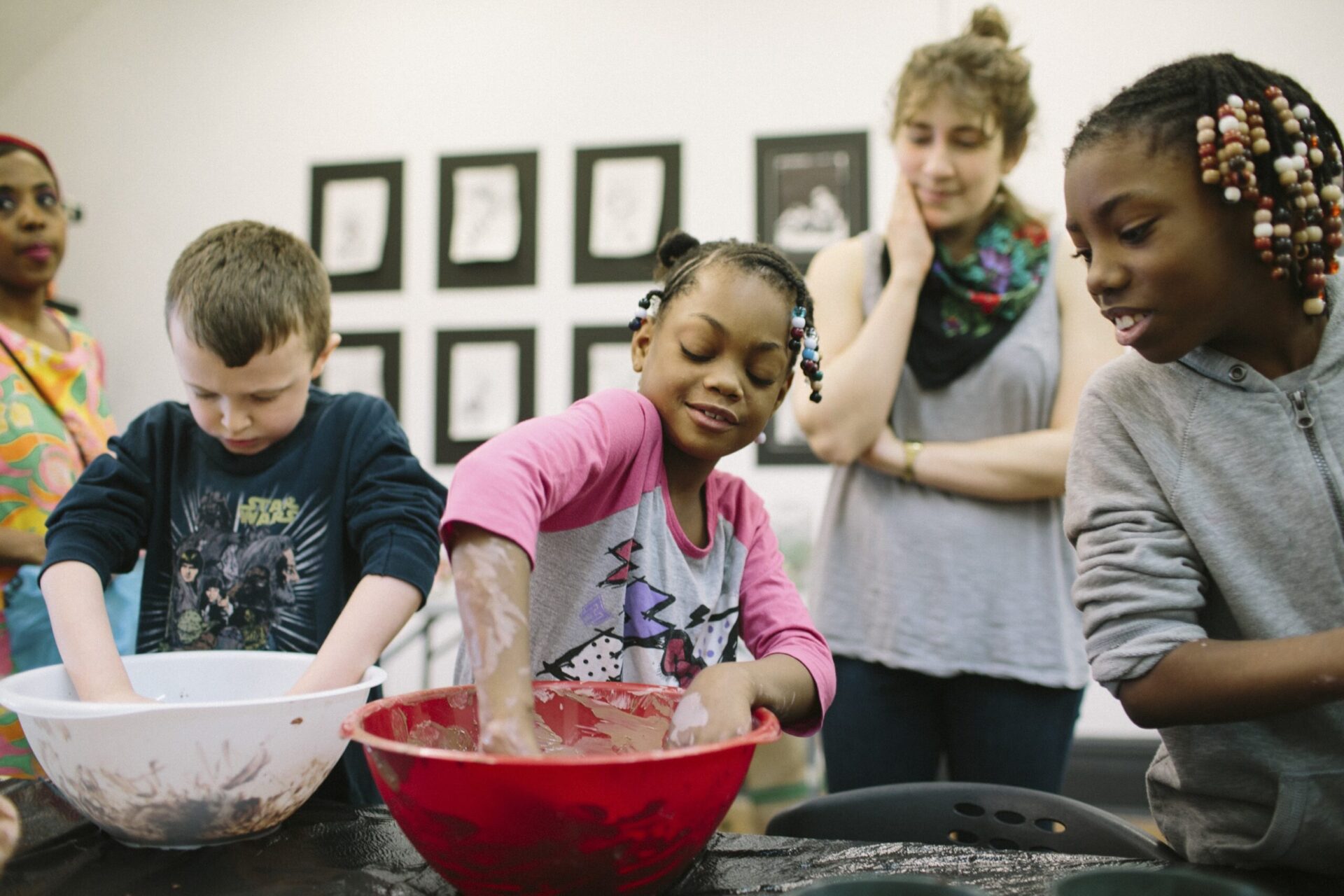
About
Remake Learning is a free peer network for educators and innovators in the greater Pittsburgh region. The network helps people connect, exchange knowledge, collaborate on new ideas, improve their practice, and find funding to spark more engaging, relevant, and equitable opportunities to enrich Pittsburgh’s learning ecosystem.
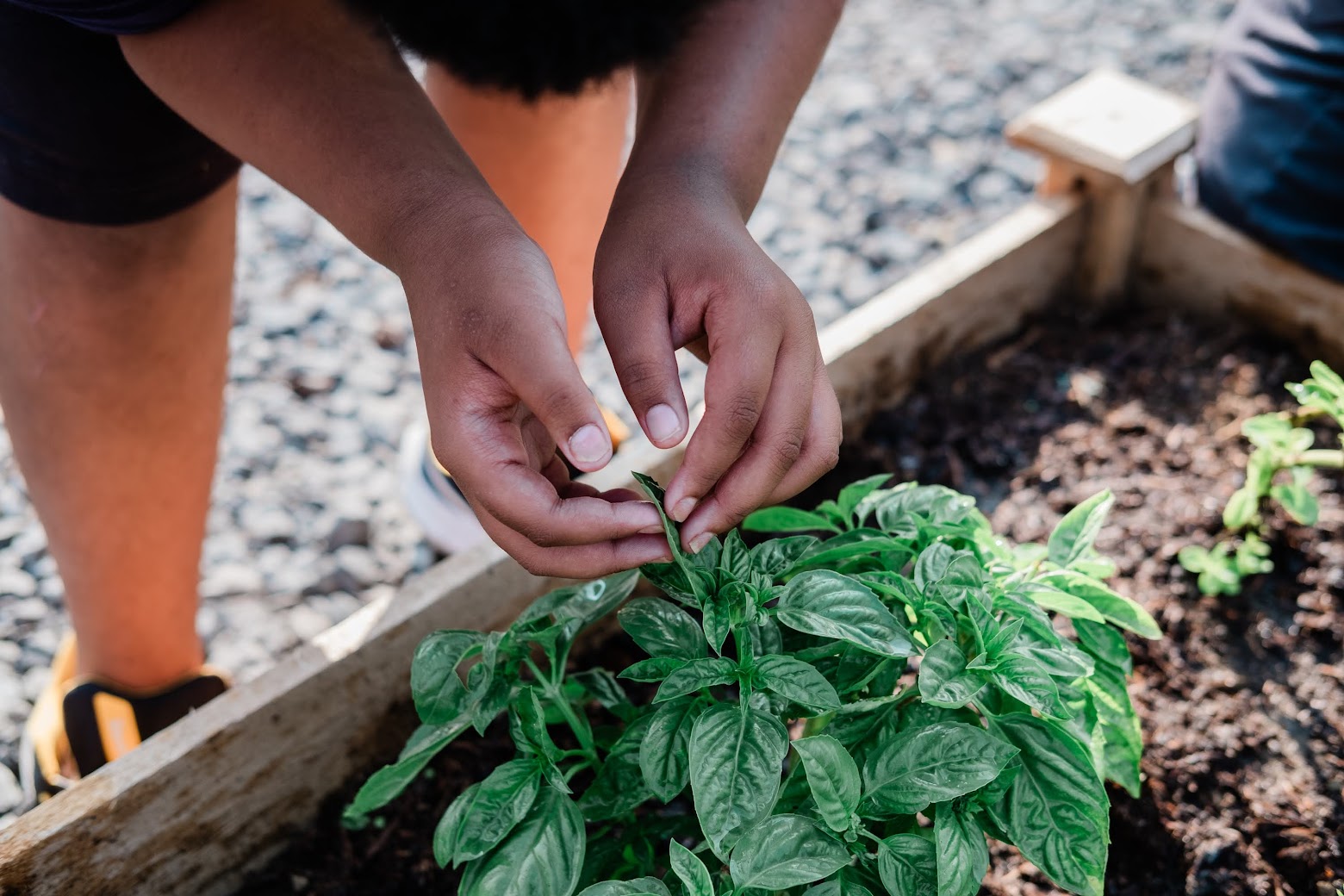
Funding that counts
Remake Learning offers grants to catalyze engaging, relevant, and equitable learning opportunities in the greater Pittsburgh region.
Why Remake Learning
As our world changes, education must change, too. No one organization can transform teaching and learning alone, so Remake Learning brings together a diverse network of stakeholders to imagine a more engaging, relevant, and equitable future for learning–and then work together to make it a reality.
We make it easier for educators and innovators to collaborate across sectors, reduce duplication, and leverage resources for greater impact. In a time of rapid change, Remake Learning helps educators connect all the places young people live, learn, and play to create more engaging, relevant, and equitable learning opportunities.
Remake Learning Team
Leaders in business, civics, education, and philanthropy working to advance learning in the greater Pittsburgh region.
Remake Learning Ambassadors
Trusted community stakeholders helping to broaden partnerships, gather input, and inform decision
Mission
Remake Learning sparks engaging, relevant, and equitable learning practices in support of young people navigating rapid social and technological change.
When learning is engaging, learners have the time, resources, support, environment, and encouragement to be active problem-solvers, creators, innovators, advocates, and citizens.
When learning is relevant, it resonates with a learner’s interests, culture, context, community, identity, abilities, and experiences, while allowing room for exposure and growth. It also prepares learners for the future, in which interdisciplinary skills like creativity, problem-solving, critical thinking, and collaboration will be increasingly salient.
When learning is equitable, more support is afforded to learners who have been marginalized or excluded from opportunity including learners contending poverty, learners of color, learners in rural areas, learners with disabilities, and girls in STEM.
History & Background
Remake Learning originated in response to changes in the ways young people pursued knowledge, developed their identities, and sought support in the digital age. The founders of Remake Learning set out to help educators develop more engaging, relevant, and equitable learning experiences that prepare young people to thrive in a rapidly changing world.
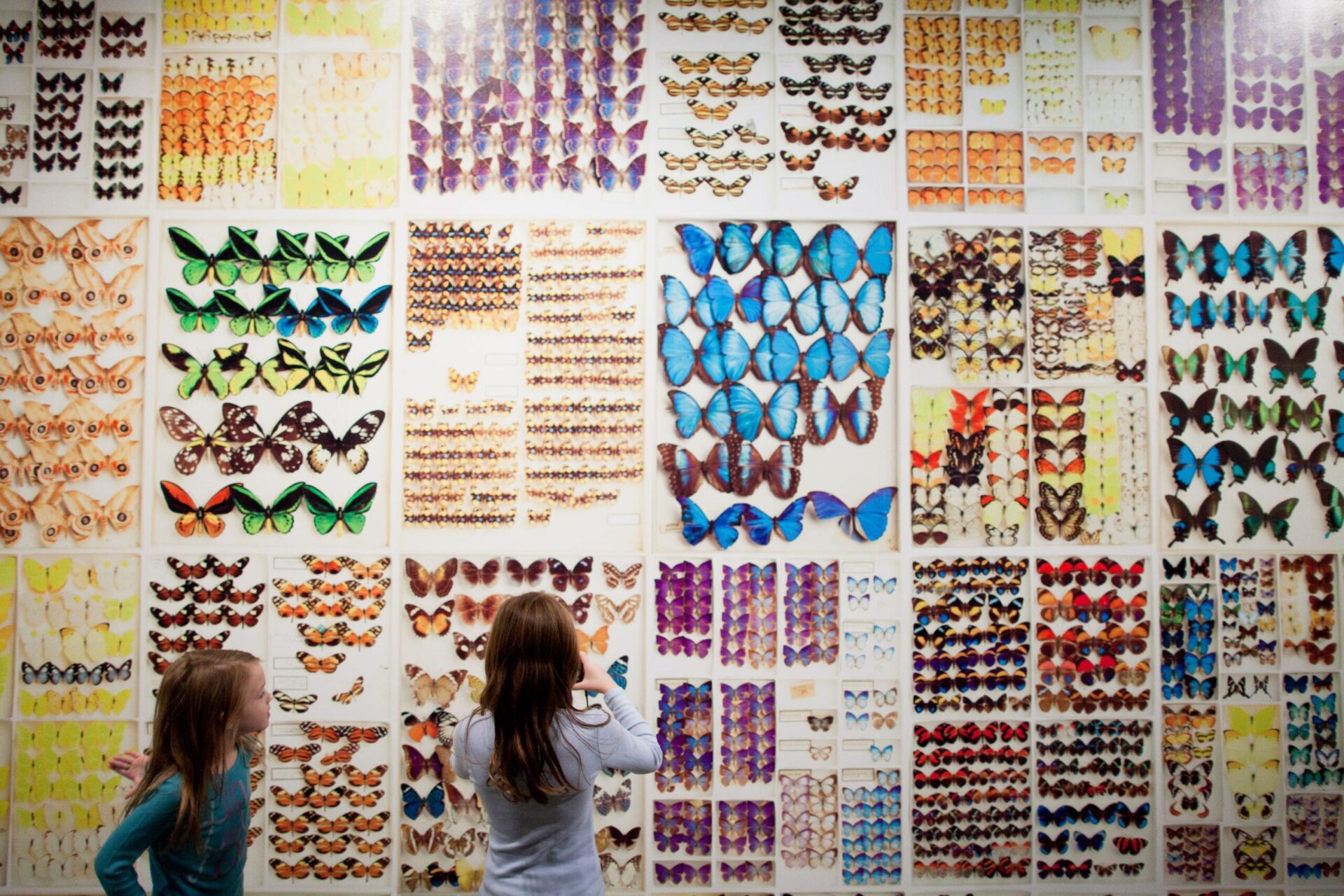
What began as an informal gathering of just a handful of people has grown into a multi-state network of more than 1,200 members.
In 2007, The Grable Foundation convened an interdisciplinary group of thought leaders and field practitioners from the region’s schools, museums, libraries, early learning centers, and out-of-school program sites. In 2011, The Sprout Fund took on stewardship of Remake Learning enhance the individual and collective capacities of network members and create a sustainable infrastructure for the network.
In 2014, leaders across the Pittsburgh region reaffirmed their commitment and formed the Remake Learning Council to provide strategic guidance for the network. In 2016, Remake Learning launched Remake Learning Days, the world’s largest open house for the future of learning. In 2017, Remake Learning engaged more than 100 network members to recreate its mission, vision, and values to reflect a greater understanding of and commitment to equity and justice.
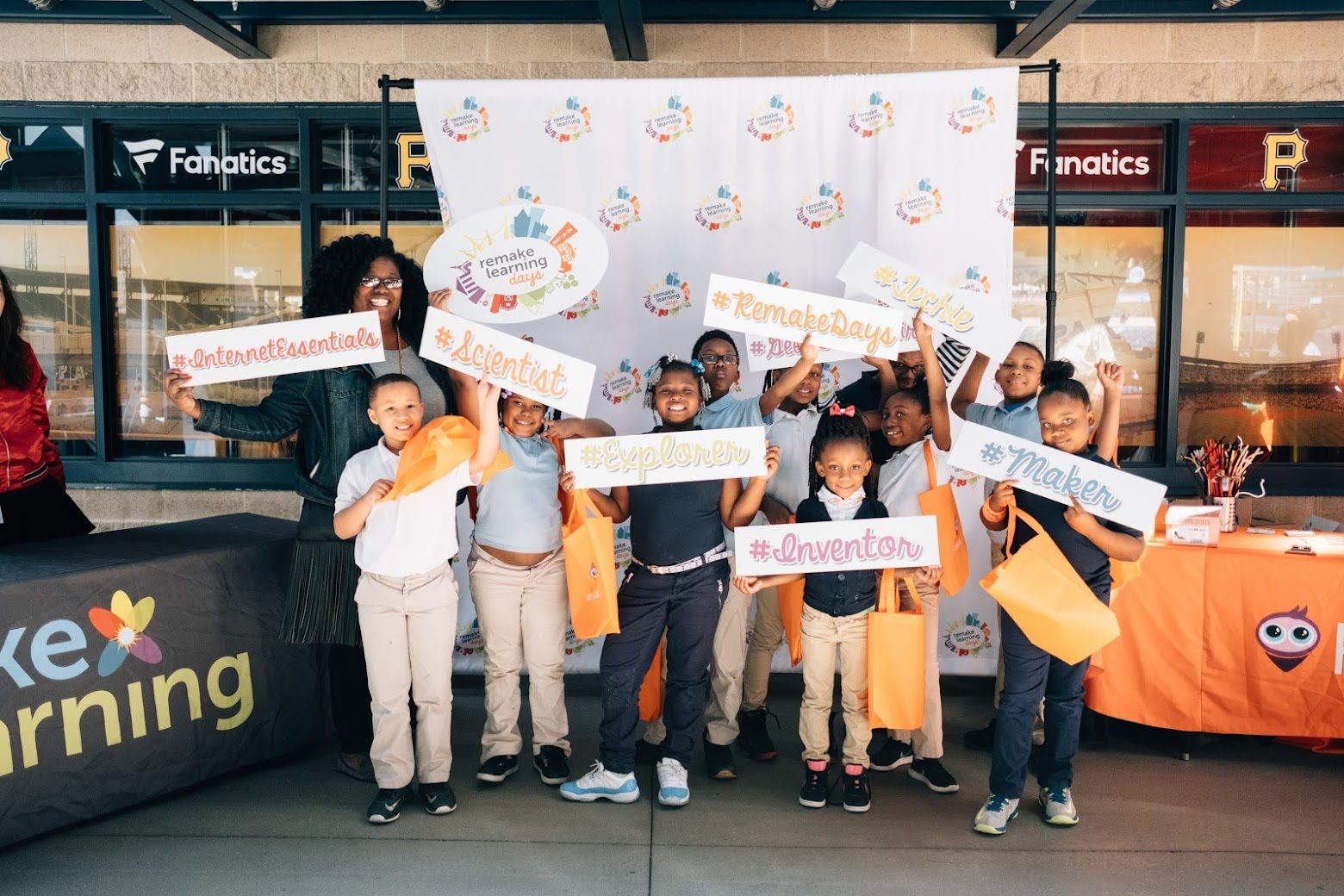
With millions of dollars invested, thousands of children engaged, and hundreds of practitioners empowered, Remake Learning is pushing the boundaries of learning.
In 2020, Remake Learning responded to the COVID-19 pandemic with the Tomorrow campaign to inspire hope and begin building ideas for a post-pandemic future of learning. In 2021, under the new leadership of director Tyler Samstag, Remake Learning refreshed its network support strategy to better respond to and support he needs and potential of the network.
Learning Values
Learning experiences are engaging, relevant, and equitable when they:
- Activate skills in critical thinking, problem-solving, creativity, communication, and collaboration
- Empower learners to question, examine, and dissect social systems
- Build cross-cultural understandings that can unlock new opportunities
- Develop authentic relationships among learners’ families, peers, and educators
- Encourage curiosity, exploration, and play
- Connect all the places young people live, learn, and play






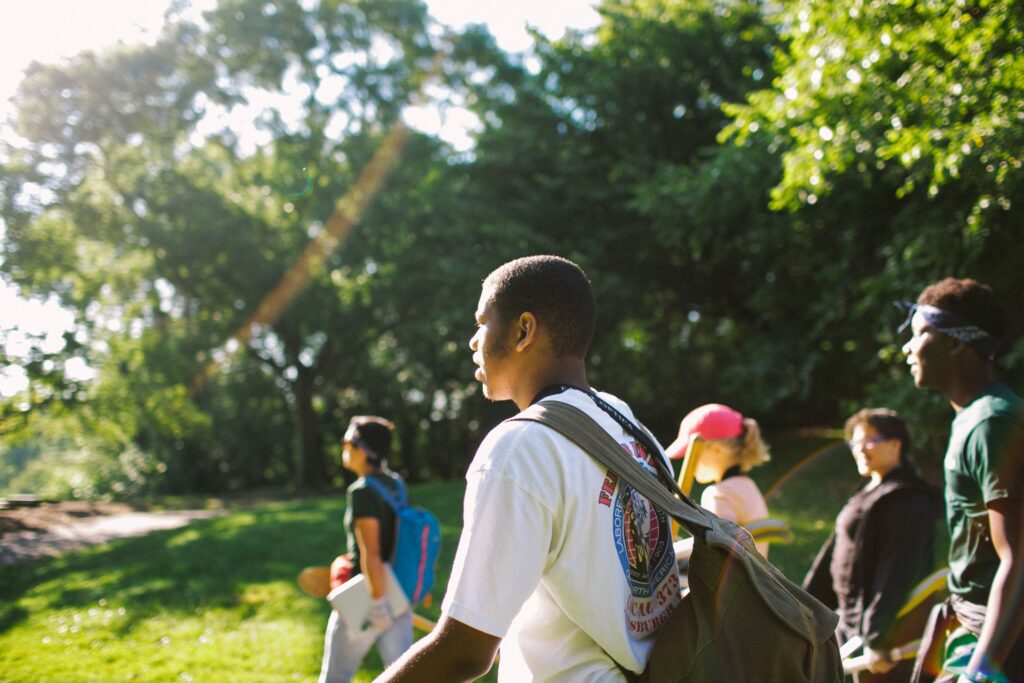



Ready to get involved?
Remake Learning invites anyone who shares our vision for an engaging, relevant, and equitable future of learning to become a member of the network. Membership is free and open to all.